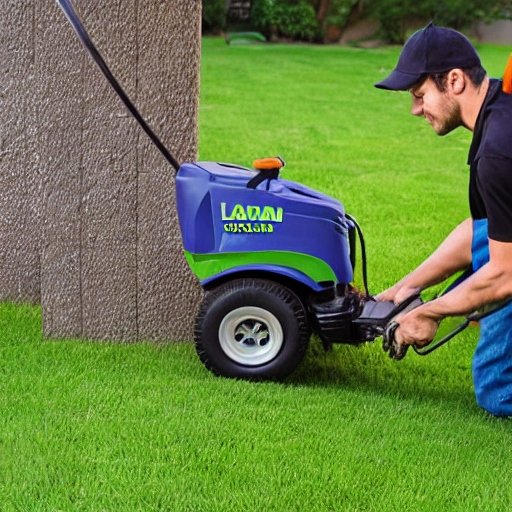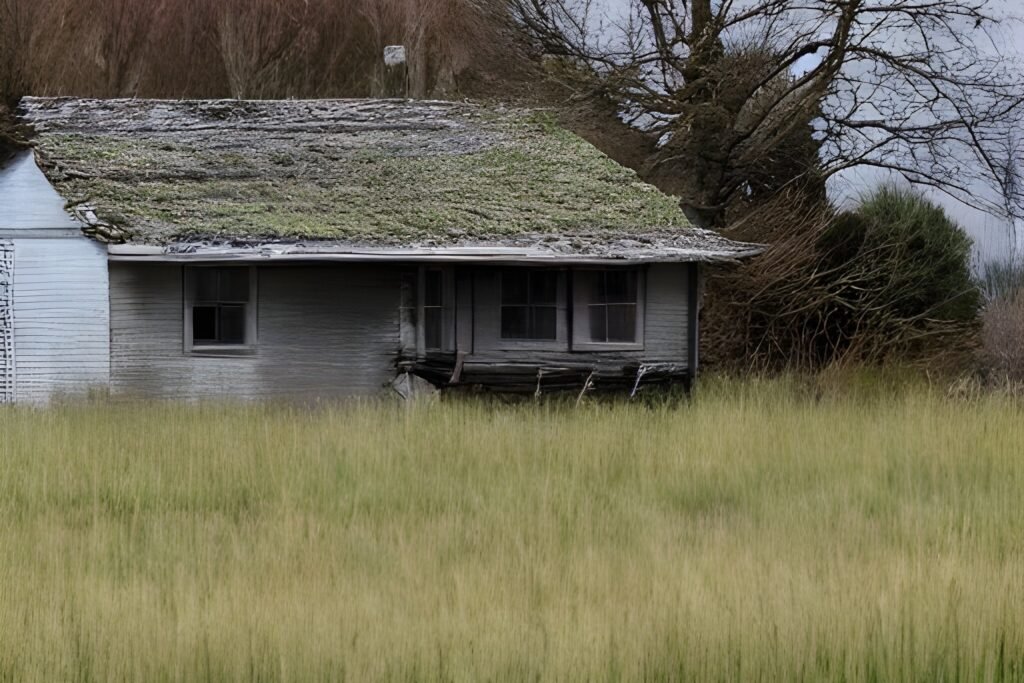Most homeowners take pride in maintaining a tidy lawn, but not Gary. Gary’s lawn is overgrown with tall grass and weeds. There might be a car hiding in there. Or maybe the entrance to Narnia. Who knows?
Neighbors like Gary can make it tough on a homeowner to know when to step in and say something. When a neighbor’s lawn is overgrown, it can be an eyesore that impacts the entire neighborhood’s curb appeal. How do you ask your neighbor to mow their lawn? Sometimes, knowing when — or if — to say something requires a delicate balance of understanding, tact, and a willingness to lend a helping hand.
While an unkempt lawn might seem like a simple matter of negligence — and it might be — there also could be unseen personal difficulties, health issues, or financial struggles preventing your neighbor from keeping up with regular lawn care.
Why is my neighbor neglecting their lawn?

Health and personal challenges
Health-related issues or disabilities can make physical yardwork difficult or impossible for some people. Conditions such as chronic pain, mobility limitations, or simply a lack of stamina can make even the simple task of mowing seem daunting. Age can also play a factor, with elderly residents struggling to keep up with demanding lawn care. Your neighbor might also be dealing with personal challenges such as caring for an ill family member or recent bereavement that has understandably shifted their focus away from yard upkeep.
Financial difficulties
Did your neighbor recently lose his or her job? Another frequent contributor to lawn neglect is financial hardship. The costs of professional lawn services, proper equipment, or even gasoline for a lawnmower can add up quickly. Unemployment, unexpected expenses, or living on a fixed income might force your neighbor to prioritize essentials over landscape maintenance.
Lack of knowledge or time
Is your neighbor a new homeowner? Perhaps he or she isn’t aware of the standards to which neighborhood homes are kept tidy. Some people prefer letting their lawn grow longer, and sometimes, a simple lack of knowledge about proper care techniques is to blame. It could also be that time constraints from work, childcare duties, or other obligations can also cause well-meaning residents to fall behind on outdoor chores.
Empathy is key
Whatever the reason, empathy and understanding can go a long way, whether you decide to address the issue with your neighbor or not. Your neighbor might be privately struggling with personal, health, or financial hardships they are hesitant to disclose. After all, if you were in their shoes, wouldn’t you want a little compassion?

The jungle next door
That said, an overgrown, unkempt lawn can have several negative impacts that extend beyond just being an eyesore. An overgrown lawn impacts affect the entire neighborhood and its residents in many ways, some of which might not be obvious. While being a good neighbor requires empathy for personal situations, understanding the broader concerns may allow you to approach your neighbor from the perspective of looking out for the entire community’s wellbeing, not just nitpicking aesthetics.
Curb appeal and property values
First and foremost, an excessively long lawn with weeds and overgrowth detracts from the neighborhood’s overall appearance and curb appeal. This can be a turn-off for potential homebuyers looking to move into the area. Neighborhoods with well-maintained lawns and landscaping tend to be more desirable and can demand higher property values. An unkempt lawn on even just one property can bring down the perceived value and marketability of surrounding homes.
Health and safety concerns
In addition to aesthetics, overgrown vegetation poses some health and safety risks. Tall grass and weeds provide ideal habitats for pests like ticks, rodents, and snakes to thrive undisturbed. The overgrowth also increases risks of fire hazards from dry vegetation. Allergens from weed pollen and mold can trigger breathing issues for those with respiratory conditions living nearby, and excess vegetation near sidewalks or roads can even create dangerous blind spots for pedestrians and drivers.
Addressing the issue with tact
Approach the neighbor directly
The best first step is to have an in-person conversation with your neighbor. Don’t — I repeat, don’t — leave a note. Notes can be misconstrued as passive-aggressive, even when well-meaning. Instead, choose a time when you’re both free from major distractions or stresses. Open the discussion by expressing your care for their well-being and asking if everything is OK. Make it clear you’re coming from a place of concern, not accusation.
Explain your perspective: that the lawn’s current state is impacting the neighborhood, and touch on any applicable health or safety issues. It might be best to focus on these issues, rather than aesthetics, even if the shaggy look really is your top concern. Avoid making demands or issuing complaints, but make it a two-way conversation by listening to their side of the story with compassion. Your neighbor might be embarrassed about the state of their lawn, and you’ll want to give them a way to save face.
Offer to help
If it becomes clear that a hardship has been preventing your neighbor from mowing their lawn, offer your services to help them take care of it. You could offer to mow and weed your neighbor’s lawn yourself, or suggest professional lawn care services in the area. If cost is a factor, look into affordable options or volunteer organizations that might be able to help.
Consider their perspective
Keep in mind your neighbors might be oblivious that their lawn is causing issues for others, or they might be aware and simply have a different perspective than you do. Give them the benefit of the doubt. They could be privately overcoming personal struggles you’re unaware of, and addressing the lawn with an understanding attitude avoids putting them on the defensive.

If the problem persists
While being a good neighbor should prioritize open communication first, there might be situations in which you need to explore more formal or legal avenues regarding an unkempt lawn. Many local municipalities have ordinances and regulations in place concerning overgrown vegetation. However, this should be an absolute last resort — involving authorities instantly raises tensions and could permanently strain the relationship with your neighbor.
If your neighborhood has a homeowners association (HOA), there might be detailed covenants about landscaping upkeep that residents must follow. You can file an official complaint through the proper HOA channels.
You can also research your city or county’s specific ordinances on lawn maintenance standards. These typically stipulate maximum grass heights, requirements for weed control, and keeping vegetation clear of public rights-of-way such as sidewalks. For severe cases of substantial neglect creating tangible hazards, you might need to contact local municipal authorities such as the city code enforcement office. But be aware that disability laws might exempt some residents from upholding basic property maintenance if they have a verified physical or mental impairment preventing compliance.
How to help
If your neighbor is receptive to assistance, there are several ways you can lend a helping hand to address the overgrown lawn situation.
Offer your own labor
One of the most direct ways to help is volunteering your own time and effort. Offer to spend a weekend assisting with mowing, weed trimming, raking, and general lawn cleanup. This act of service builds goodwill with your neighbor and shows you’re committed to being part of the solution.
However, use discretion if the situation involves ability or health issues where physical labor could be unwise or unsafe for the resident. In those cases, politely suggesting professional lawn services might be more appropriate.
Suggest lawn care services
If your neighbor simply lacks the time, tools or know-how for proper lawn maintenance, recommend reputable local lawn care companies or individuals in the area. Do some research on rates and compile a list of affordable options. You could even offer to help coordinate or schedule services on their behalf.

Organize a community effort
For neighborhoods where multiple properties face overgrown lawn issues, consider organizing a community-wide cleanup day as a volunteer effort. Pooling together able-bodied neighbors to tidy up everyone’s yards at once fosters a sense of community spirit. You could also reach out to local churches, non-profits or community groups that may be able to lend volunteers.
Explore assistance resources
Depending on your neighbor’s circumstances, there may be local government or nonprofit resources that provide assistance for basic lawn maintenance for those who are elderly, disabled or financially struggling. Look into any programs that offer these services for free or low-cost for those who qualify.
Taming the wild kingdom
Addressing an overgrown lawn situation with a neighbor requires equal parts empathy, tact, and a willingness to lend a helping hand. While an unkempt yard can impact a neighborhood’s curb appeal and even property values, by approaching the issue through open and compassionate communication, you can resolve the issue in a way that leaves both neighbors feeling better about the situation.
Maintaining a tidy community takes a village – so don’t hesitate to offer assistance or tap into local resources. With some understanding and elbow grease, you can tackle the overgrown lawn and foster a more cohesive, beautiful neighborhood for all.
Even for Gary.

